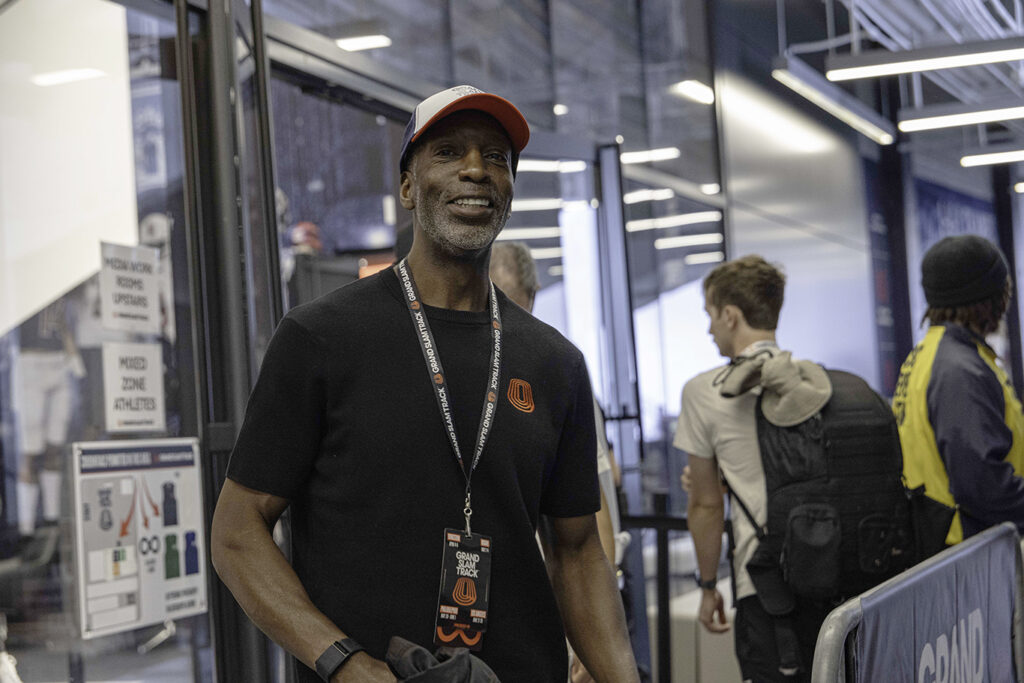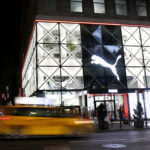Michael Johnson confirmed that financial issues impacted the inaugural season of Grand Slam Track from the start after an investor was apparently unable to meet their full obligation.
In an interview with Front Office Sports released on Thursday, Johnson said the investor issue caused problems that would ultimately hinder the league.
“We’ve had a very difficult situation this year financially,” Johnson said. “We had an investor that wasn’t able to honor their complete commitment to the league. So we started off with the capital we needed to get through the season as we planned it with the four slams — and made sure we could take care of everyone.”
While Johnson said the league had the funds it needed for the full four-meet season, the league trimmed its Philadelphia meet to two days and canceled the final showcase that was scheduled for Los Angeles in June.
“That was a huge blow to us. Caused a major cash flow issue for us,” Johnson later added. “Put us in a difficult position, put our athletes in a difficult position. But we’re very confident that we’ll pull ourselves out of it.”
Johnson’s statements bring significant clarity to rumors about the league that have lingered since the Philadelphia event in May was condensed.
Following the cancelation of the Los Angeles meet, reports of athletes and vendors not being paid, staffers being laid off and questions of the future of the league increased.
In mid-June as the Los Angeles event approached none of the 48 Challengers — non contracted competitors — were announced even as press officials despite media credential requests being accepted and processed for the showcase.
A report from The Times shortly after the abrupt end to the season said that the cancelation of the final event would save the league around $3 million in guaranteed prize money, appearance fees and various fixed costs.
Meanwhile, in early July a pair of reports from Front Office Sports and The Times said athletes were only paid appearance fees from the league’s first meet in Kingston, Jamaica and were waiting for prize money from that meet in addition to payouts from events in Miami and Philadelphia that totaled around $13 million.
Both reports cited separate sources within the league and obtained an email that was sent to athletes representatives to explain the delay in payments and what the roadmap to settle the financial hold up would entail.
“At this time, all agents who have sent the appropriate paperwork have been issued appearance fee payments for Kingston,” the email read. “Our plan is to make payments for Kingston prize money before the end of July and the remaining payments due by the end of September, which includes the honoring of Los Angeles appearance fees.”
The matter of athletes not being full paid has even drawn the attention of World Athletics after some participants reached out to the governing body to discuss the matter.
At a media session before last week’s London Diamond League stop, World Athletics head Sebastian Coe, confirmed that his organization is aware of the concerns about Grand Slam Track’s finances
“It’s not good,” Coe said. “The one thing that World Athletics has always stood strongly behind is the athletes. So yeah, this is not a good situation. It’s a startup, but the athletes do need paying.”
Coe added, “For these things to work, they can’t be vanity projects. They have to be suffused in practicality and deliverability.”
When Johnson announced the league last year, it marked a shift in the sport because of high promised cash prizes that easily eclipsed Diamond League payouts. Grand Slam Track event winners would take home $100,000 over three days of competition.
The high-profile signing of Sydney McLaughlin-Levrone gave the league athlete credibility and soon marquee names like Gabby Thomas, Josh Kerr, Grant Fisher and Yared Nuguse were among the stars who inked deals to appear as Racers in all four scheduled meets.
Johnson, the league’s commissioner, was backed with a $30 million commitment from Winners Alliance and guaranteed $12.6 million in prize money to the athletes. However major details like the broadcast partners were not unveiled until weeks before the Kingston meet in April.
Changes are likely to occur if the league continues through 2026, while Johnson admitted to Front Office Sports what was his most glaring error as Grand Slam Track took shape.
“We probably went too fast,” Johnson said in the interview. “We probably need to be more cautious and certainly will going forward.”







